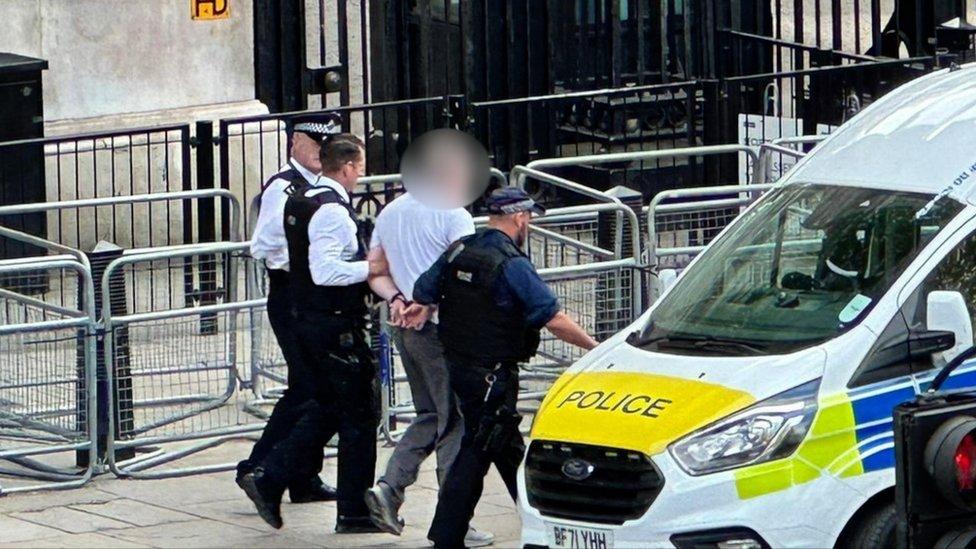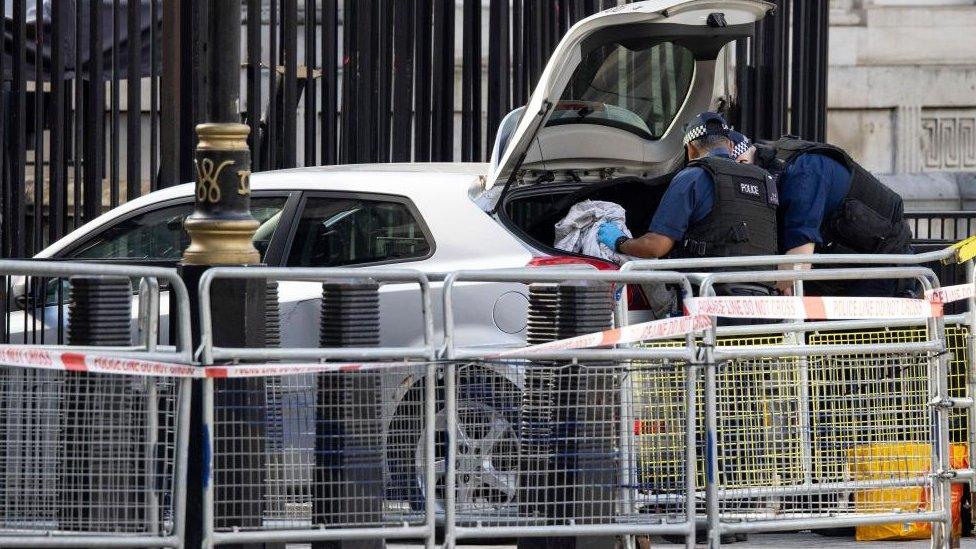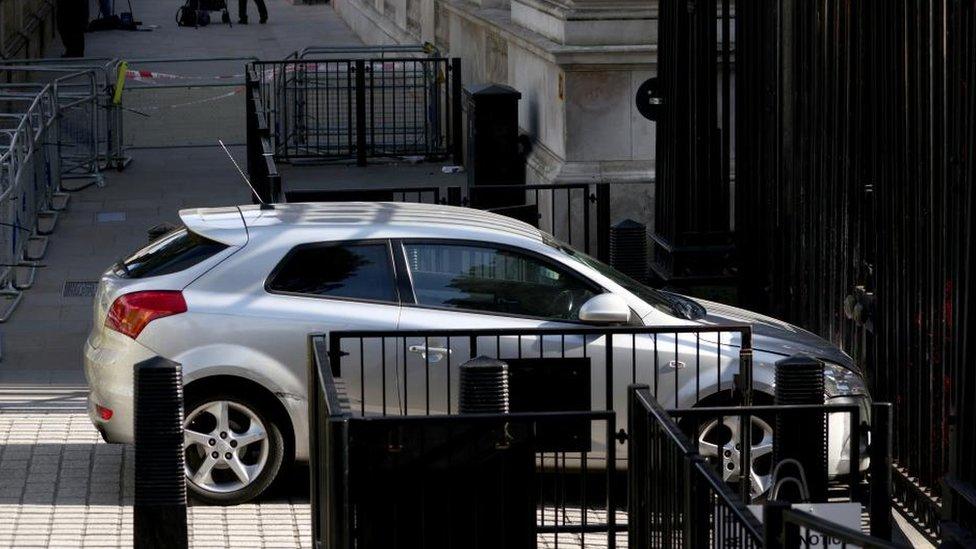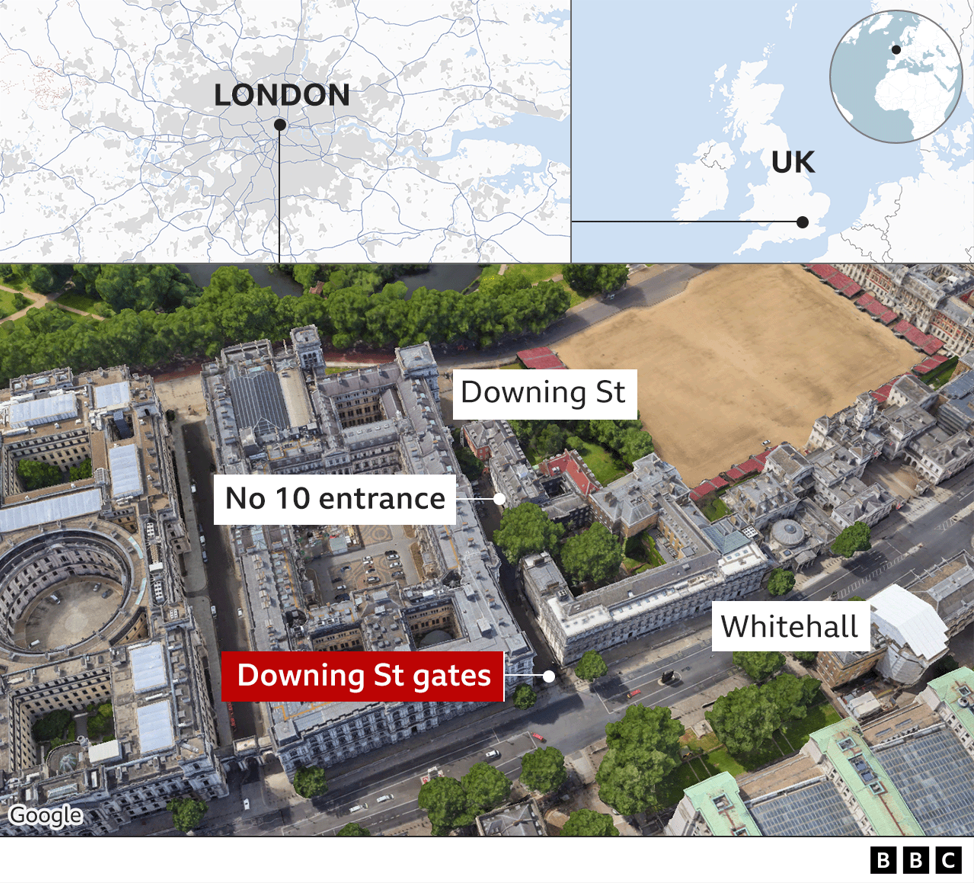Man arrested after car crashes into Downing Street gates
- Published
Watch: Moment car crashes into Downing Street gates
A man has been arrested after a car crashed into the Downing Street gates.
The Met Police said he was held on suspicion of criminal damage and dangerous driving, but the incident is not being treated as terror related.
One witness said he saw officers pointing Tasers at a man, who was held "face to the floor" as he was detained.
No-one was injured in the incident. No 10 has confirmed Rishi Sunak was in Downing Street at the time.
The area in Whitehall, the main road which runs through the heart of several government offices, was partially evacuated following the incident at 16:20 BST.
The road has since reopened to traffic and the police cordon has been removed. At 19:45 the car was loaded onto a police recovery vehicle and removed from the scene.
Officers had been seen searching the vehicle and removing a mobile phone in an evidence bag. A forensics officer was seen inspecting the car, and sniffer dogs were also spotted at the scene.
Witness Simon Parry, 44, said he heard a "bang" and saw police pointing Tasers at a man.
"A lot of police vehicles came very quickly and were very quick to evacuate the area," he told PA news agency.

The man was led away by police following the incident
Describing the mood on Whitehall in the aftermath of the incident, Mr Parry said: "We saw people that were in a panic running away and we saw people who were excited."
Another witness, Matthew Torbitt, 32, said he heard a loud bang and was stopped on Whitehall after police locked down the area.
Footage of the incident shows the car, a 2009 silver Kia registered in London, slowing down as it approaches the main entrance to Downing Street.
It was picked up on a BBC camera driving directly towards the main gates, crossing two lanes from the southbound side of Whitehall and heading in the direction of Downing Street.
The entrance to the street is staffed around the clock by armed and unarmed police officers but is accessible by road via Whitehall.
The PM and the chancellor were in Downing Street at the time of the crash. Mr Sunak has since left for a scheduled visit.
Reporting from the scene, BBC political correspondent Helen Catt said there appeared to be little damage to the gate and Whitehall was "pretty much back to normal", with people going in and out of Downing Street by foot as normal.
Conservative MP Tobias Ellwood, who was caught up in the 2017 Westminster terror attack, said the incident was a reminder of the delicate balance between the rights of public access around significant buildings and security measures.
He told BBC News that Westminster feels safer following the security overhaul which was triggered by the 2017 attack, but said he still has "huge concerns"
"We embrace this idea that we can open up our places of interest, particularly something as iconic as the heart of our democracy, but ultimately there is a duty of care to those who live and work in the Westminster area, not least around No 10," he added.
Frank Gardner, the BBC's security correspondent, said police have spent years preparing rapid response measures for potentially dangerous incidents in central London following high-profile attacks around the world.
He said any security alert near an iconic landmark will inevitably trigger a large response, and pointed out that Downing Street has been a target in the past.
In 1991, members of the Provisional IRA fired homemade mortar shells at No 10, injuring four people.


